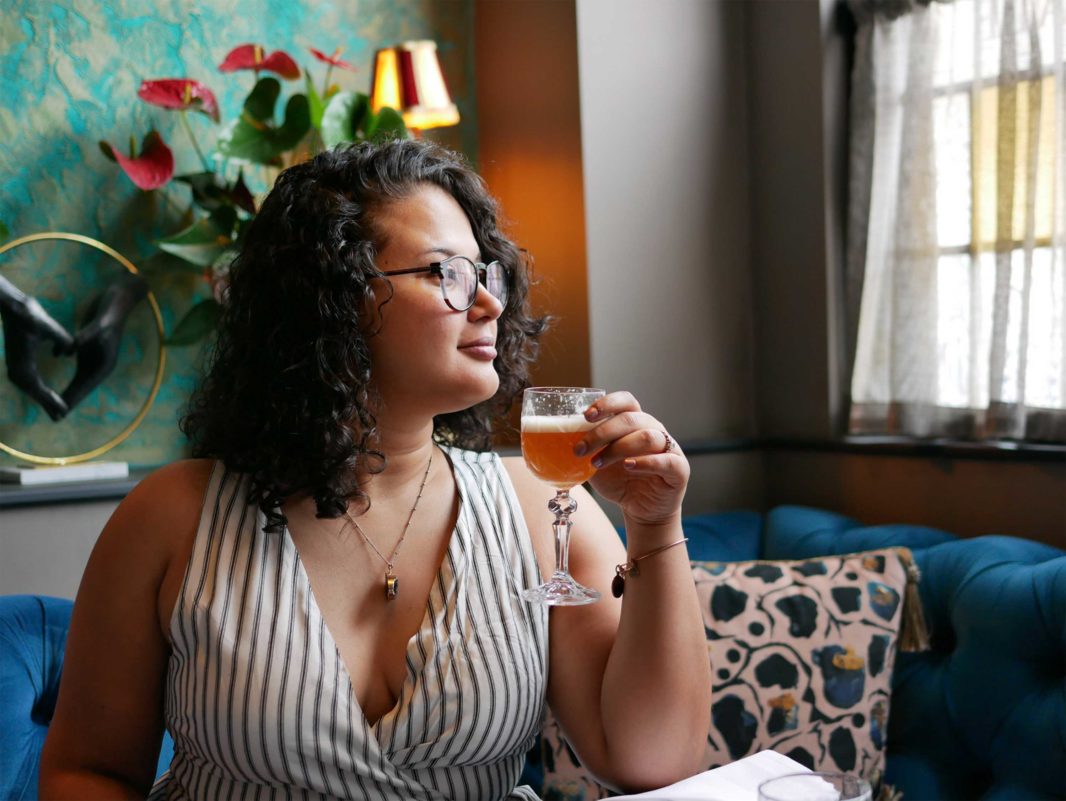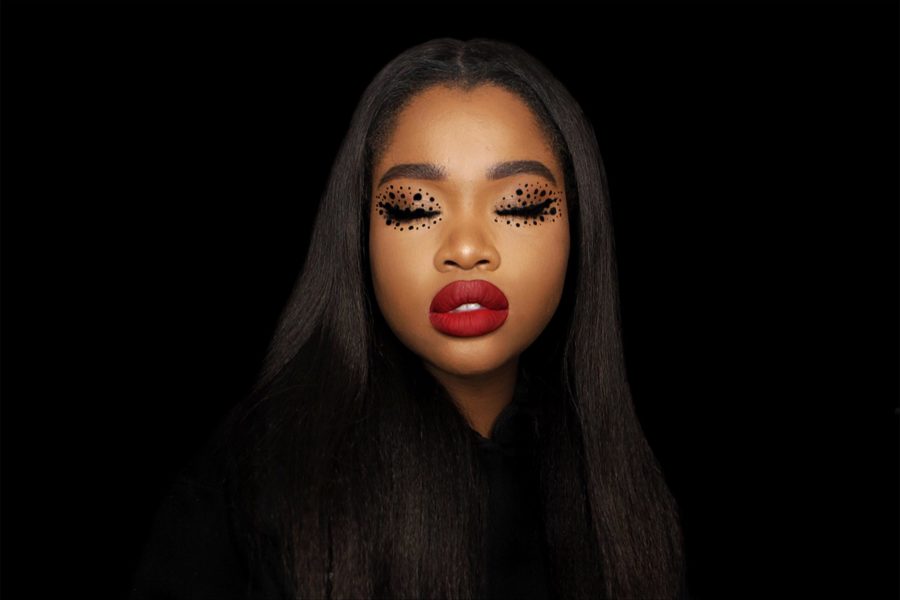Claudiane Philippe has been blogging for six years. She runs three different brands, including Nail the Cocktail, a unique site and Instagram account where she showcases mixed drinks around Boston paired with equally spectacular nail art.
Despite her high following (94.7K followers across her three Instagram accounts) and strong engagement, Philippe says that, as a black woman, she still gets low-balled for collaborations and paid partnerships. When she’s offered the same opportunity as white influencers in the Boston area, she’s almost always offered lesser compensation.

Timna Nwokeji
For Timna Nwokeji, a lifestyle blogger who operates between Boston and Lowell, getting into the room at all is a challenge. “I have found it difficult to get into certain events and into certain spaces, especially in Boston, as a Latina,” she says.
Philippe agrees, “Oftentimes you go to events, and there aren’t many bloggers of color. It’s not because they’re not going, it’s because they’re not getting invited.”
The problem isn’t that influencers of color don’t exist in Boston. They do, in high-quality droves. Last year, Philippe threw a networking event. She compiled a list of over 70 local content creators — all influencers of color — just through casual research. And yet, most blogger round-ups, awards and targeted events paint a much less diverse picture.
Ultimately, Philippe says, marginalizing influencers of color is just bad business. “What people don’t understand about bloggers of color is that you’re paying to reach a demographic,” she says. “There’s a value proposition there.”

Photo courtesy of Nicole Rosario
Nicole Rosario flexes her creative muscles through her Instagram photography.
Influencer Nicole Rosario says she often gives advice to her followers about which hair care products are best for curly, textural hair. Bloggers of color are providing different content than white ones. They’re doing so to an audience with both specific needs and buying potential.
Philippe also notes that when brands work with strictly white bloggers in the Boston area, they’re reaching the same readers. If you’re not diversifying your content creators, you’re likely also not diversifying your audience.
All three bloggers agree that if brands and event coordinators were more conscientious about having a diverse group of creators, the representation would be beneficial for both parties. As a consumer of online content, notice whether the brands you follow are working with a spectrum of parties. If they’re not, they, and you, are missing a big part of the picture.
“Boston is not a city that’s purely white,” says Philippe. “If you walk down the street you’ll find people from all walks of life. By just representing one specific look, you’re leaving out the shared experiences of other people.”
Shake up your Instagram feed with these awesome local influencers of color.



 3 min read
3 min read

